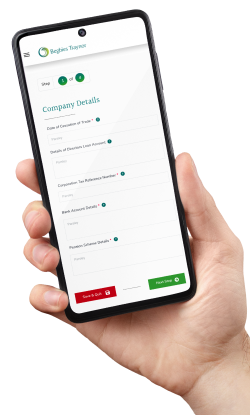When a company goes into liquidation, unfortunately, all employees will lose their jobs. This is because liquidation is a terminal process that results in the permanent closure of a company. Liquidation can happen to both solvent and insolvent companies.
Liquidation is a formal procedure carried out by a licensed insolvency practitioner (IP) in both solvent and insolvent situations
During a solvent liquidation process, Members’ Voluntary Liquidation (MVL), staff are paid by the company as normal until their final payday before they are made redundant. Any redundancy, unpaid wages or accrued holidays are also paid by the company to employees prior to its closure. As an MVL is a solvent liquidation, the process is typically something which is planned ahead of time and employees may well have been notified of the impending liquidation many weeks or months prior to it happening.
In an insolvent liquidation there isn’t typically the same amount of time available. A company can find itself in an insolvent position surprisingly quickly and in many instances, the only viable option is to place the company into liquidation immediately to prevent losses from increasing. There may also not be the funds available for the company to pay employee the wages and other statutory entitlements such as redundancy.
So what happens to the employees of a company when their employer enters into an insolvent liquidation process?
Concerned about the National Insurance increase?
For the 2024-25 tax year, the rate of employer National Insurance increases from 13.8% to 15% adding yet more pressure onto already squeezed cash flows. If you are worried about the impact this could have on your company’s finances, talk to the experts at UK Liquidators. As licensed insolvency practitioners we can explain your options and help you plot a way forward. Call today on 0800 063 9262.
When a company goes into liquidation, its assets are liquidated, all employees are made redundant, and the company is struck off the register at Companies House.
In an insolvent liquidation, employees become creditors of the company for unpaid wages, holiday pay, and other outstanding amounts. For certain payments they’re preferential creditors; for others they’re unsecured creditors and therefore placed further down the line for payment.
Regardless of whether the company has the funds to be able to afford to pay staff the redundancy pay and other outstanding payments owed, or not, does not ultimately affect the employees who have been made redundant. This is because when the company enters liquidation, eligible employees can make a claim for redundancy pay and other statutory entitlements from the National Insurance Fund (NIF).
If the company cannot pay the redundancy staff are owed, these payments will instead be made from the National Insurance Fund (NIF). Employees will not lose out and will still receive the statutory redundancy they are entitled to.
Liquidation Portal
For Company Directors

The Redundancy Payments Service (RPS) administers claims on the National Insurance Fund from employees whose company has gone into insolvent liquidation. Claims typically include redundancy pay, arrears of wages, and outstanding holiday pay, with payments generally being made around six weeks from the claim date.
If you are the director of an insolvent company and you are worried what this could mean for your staff, it’s important that you don’t try to close down your insolvent company via dissolution. While dissolution via the strike off process may seem a cheaper option, this process is only for solvent businesses. Taking the dissolution route simply makes it harder for employees to receive financial compensation for the loss of their jobs, as they would have to claim unfair dismissal through an employment tribunal in order to secure any payment.
Instead, you should look to put your insolvent company into a formal liquidation process known as a Creditors' Voluntary Liquidation (CVL) which allows you to close your company in an orderly manner while also ensuring your employees can claim the redundancy they are owed as quickly as possible.
Start your online liquidation today
If you have decided liquidation is the right option for your limited company, you can take the first step and begin the process online using our online portal. Starting the process is quick, simple, and can be done at a time that suits you. Your information will be submitted to your local UK Liquidators insolvency practitioner who will be with you every step of the way. Click here to start your company’s liquidation online.
Obtaining professional guidance is crucial when a company is experiencing financial difficulty. It helps directors to avoid trading wrongfully during insolvency, and also allows them to better protect their employees at a worrying time.
If you are the director of a company which is in financial distress, UK Liquidators can provide the reliable support you need. We’re insolvency experts operating nationwide, and can arrange a free same-day consultation.
By completing the test, you will receive:
If you are considering liquidation for your company, taking expert advice at an early stage is crucial. At UK Liquidators, our team of licensed insolvency practitioners are committed to providing limited company directors with the help and advice they need to make an informed decision.




Looking for immediate support?
Complete the below to get in touch